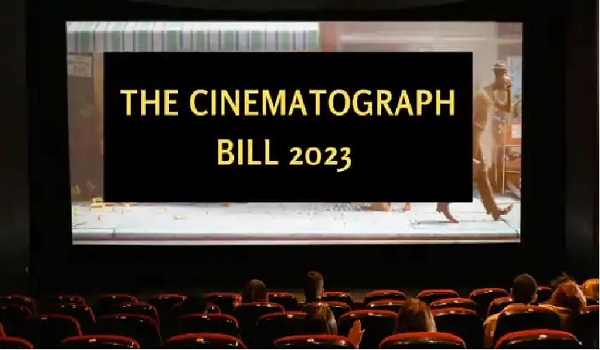Cinematograph (Amendment) Bill – 2023 was passed in the Rajya Sabha.
Need for amendment in Cinematograph Act
- The Cinematograph Act – 1952 needed to be amended for several reasons such as – to harmonize the law with various executive orders, judgments of the Supreme Court and other legislations.
- Reforms in the process of licensing films for public exhibition by the CBFC.
- To expand the scope of classification for certification.
- The issue of unauthorized recording and exhibition of films and to curb piracy.
Cinematograph (Amendment) Bill, 2023
Anti-Piracy Provisions
The bill aims to deter piracy of films by imposing strict penalties on individuals involved in unauthorized audio-visual recording and distribution of copyrighted content.
The provisions include
- Jail Term: Imprisonment from 3 months to 3 years.
- Fine: From Rs. 3 lakhs to 5% of the audited gross production cost.
Expansion of Copyright Coverage
- It aims to extend the coverage of the Cinematograph Act, 1952, which was primarily focused on censorship, to now encompass copyright protection.
- This move aligns with the evolving landscape of film distribution and aims to safeguard the intellectual property rights of filmmakers and content creators.
Government’s Limited Powers over CBFC
- It emphasizes the autonomy of the Central Board of Film Certification (CBFC).
- The Government may no longer have revisional powers over the CBFC’s decisions, based on the Supreme Court’s judgment in the case of K.M. Shankarappa vs Union of India (2000).
Age Ratings
- The amendment bill introduces a new age rating system for films that require adult supervision.
The current U/A rating, which covers a broad age range, will be split into three distinct categories
- U/A 7+: Films suitable for children above the age of 7 with parental guidance.
- U/A 13+: Films suitable for children above the age of 13 with parental guidance.
- U/A 16+: Films suitable for children above the age of 16 with parental guidance.
- This new classification system aligns with the graded-age classifications implemented for streaming platforms under the IT Rules, 2021 and Shyam Benegal Committee recommendations (2017).
Recertification for TV and Other Media
- Historically, films rated for adults have been prohibited on television since a 2004 Bombay High Court order.
- As a result, broadcasters often voluntarily make cuts to films and seek re-certification from the CBFC for a U/A rating.
- The bill formalizes this practice, allowing films to be recertified for television and “other media.”
Perpetual Validity of Certificates
- The Act has been amended to remove the 10-year validity restriction on CBFC certificates, thereby granting them perpetual validity.

